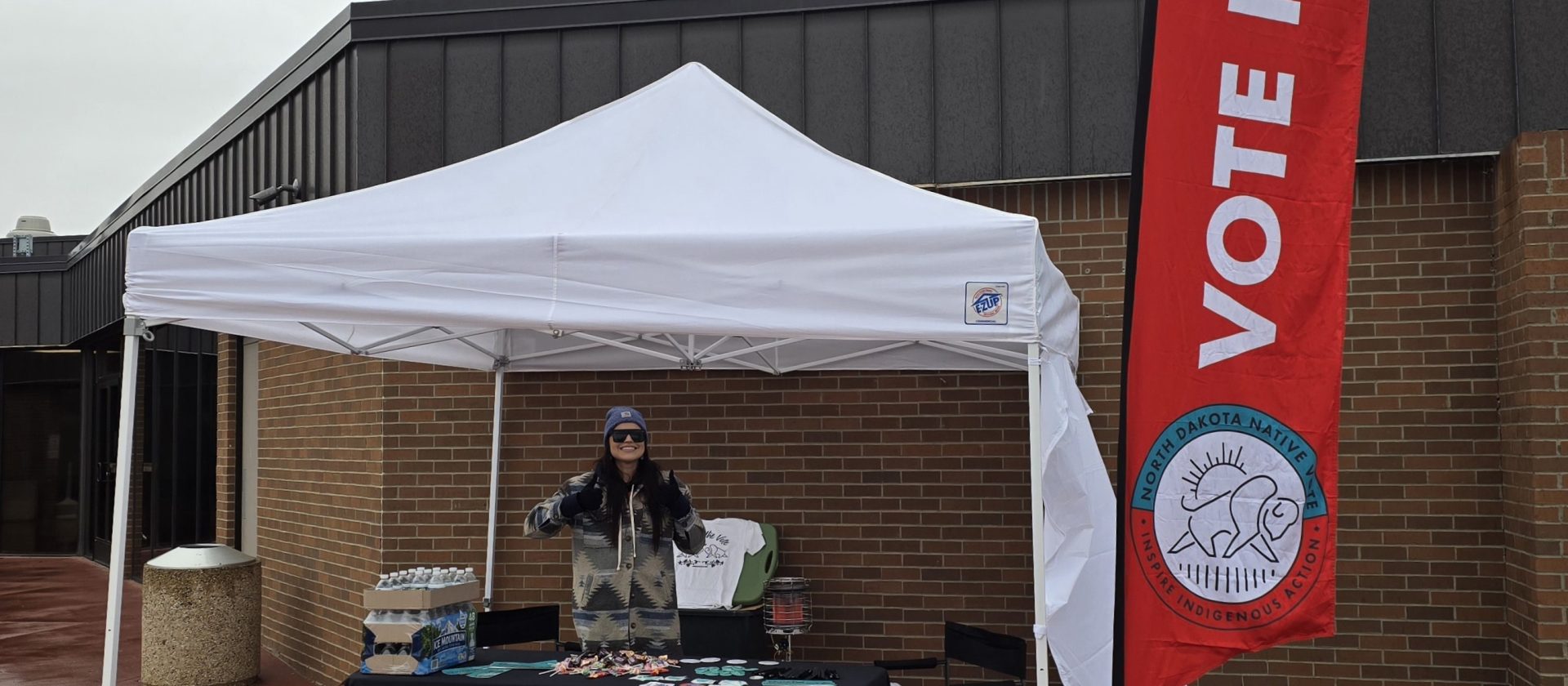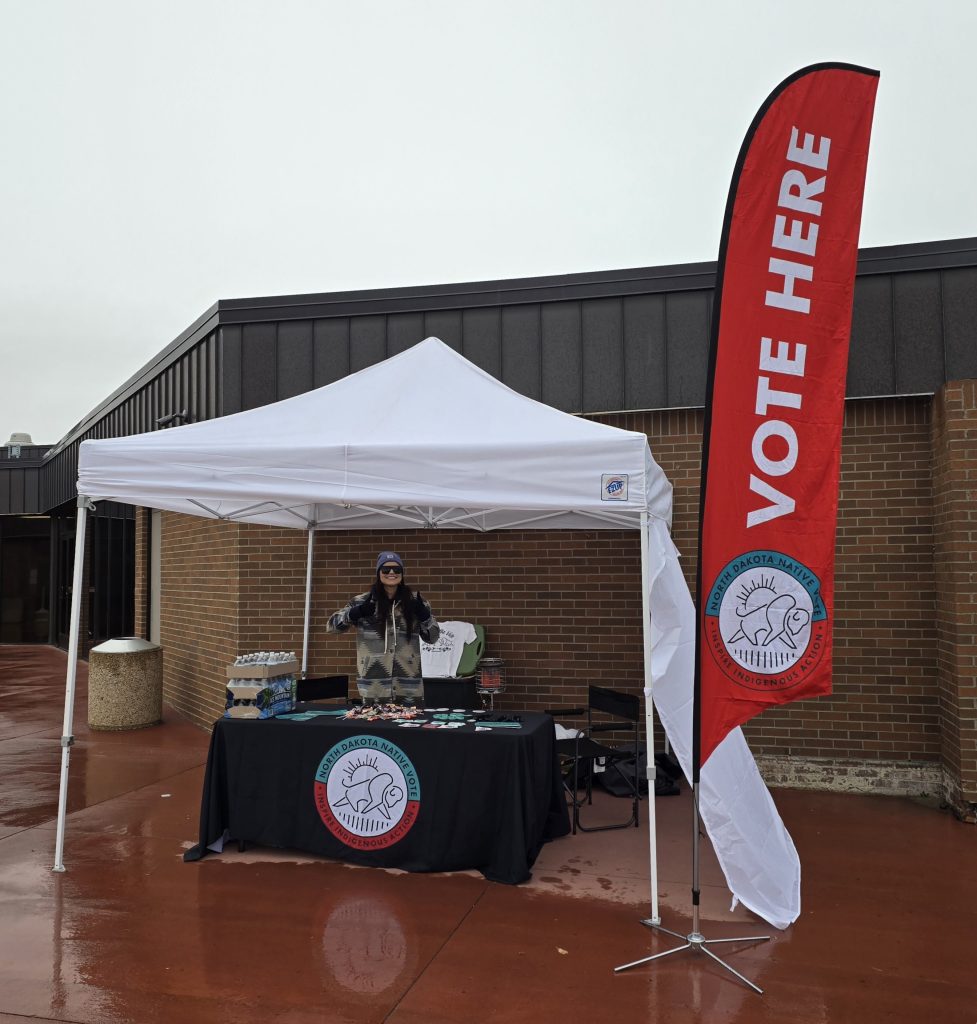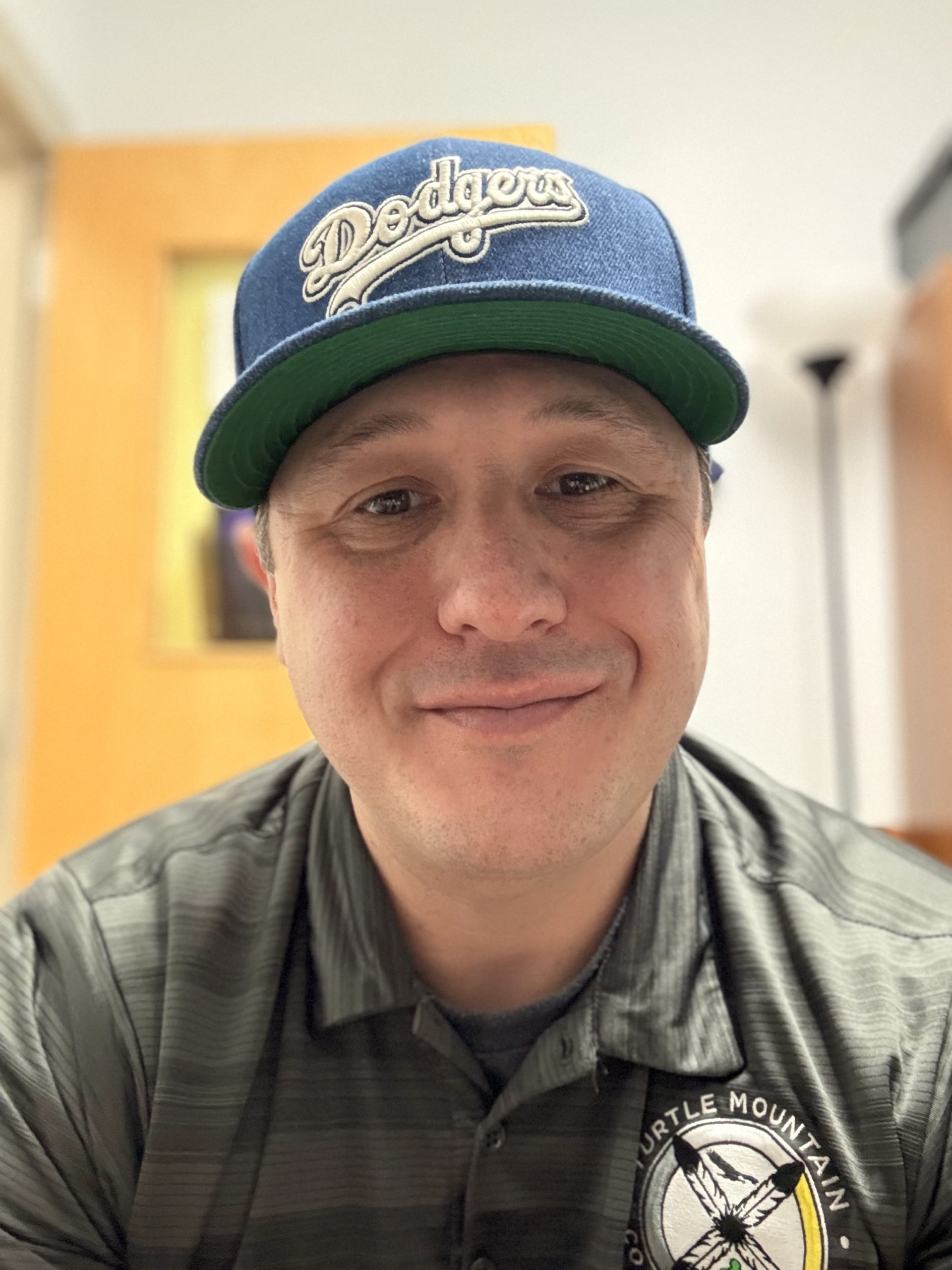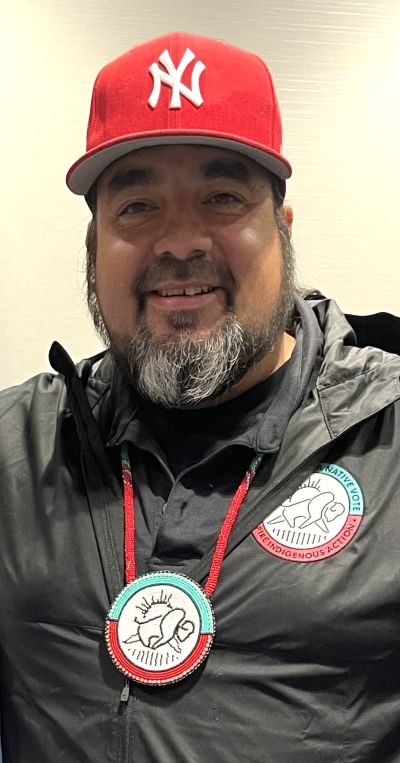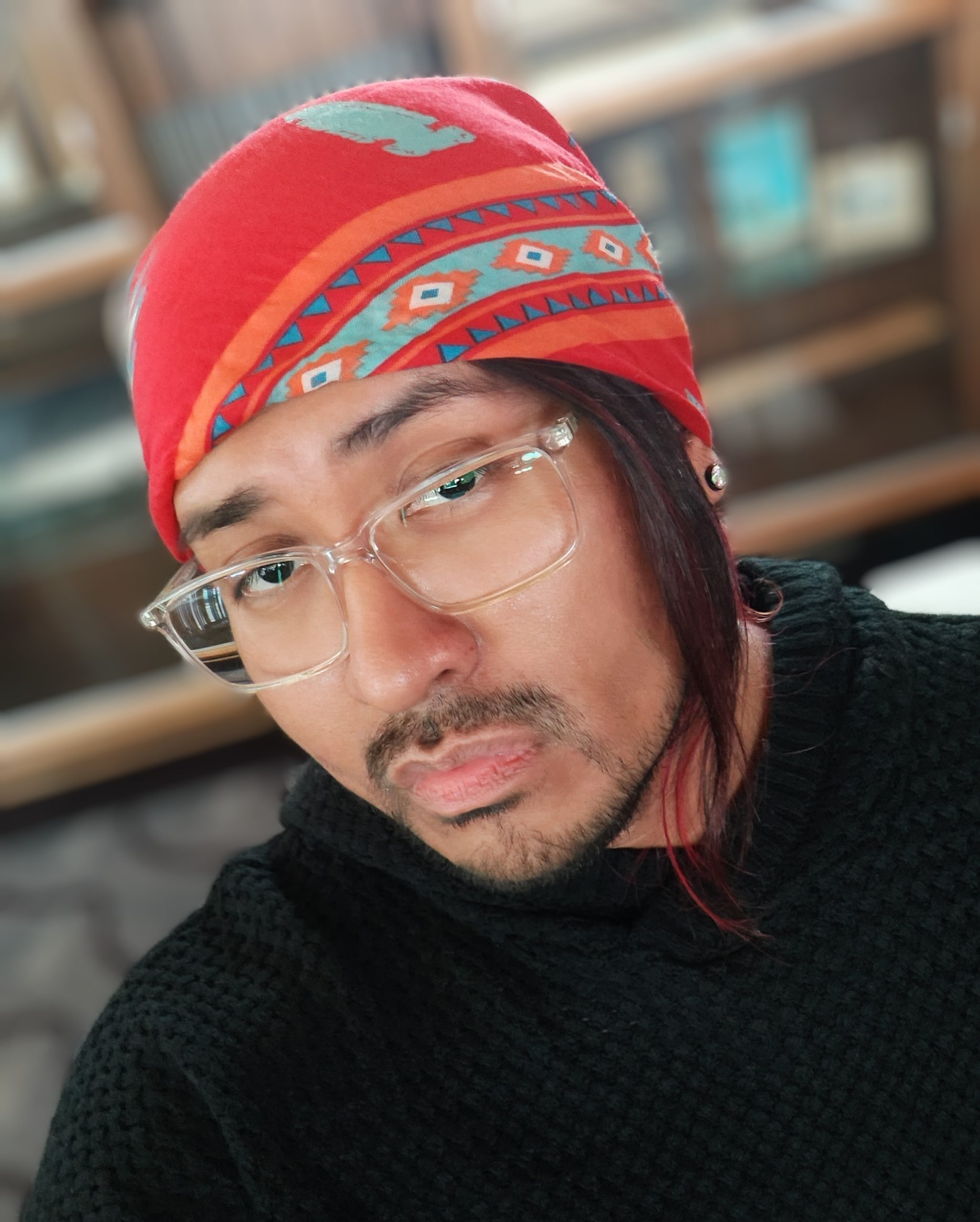Mission
Our mission is to educate tribal communities to construct a representative democracy through community organizing, leadership development, civic engagement, and public policy advocacy.
Vision
Our vision is to inspire tribal members to take action on the issues that affect their communities. We work to build power and to enhance leadership for North Dakota’s Native people. We are a resource that promotes tribal self-determination.
Values
We carry on the values of our ancestors and the foundation they created for us to preserve our way of life.
We Work to Inspire:
| I | Inspire indigenous action |
| N | Native voices and native faces |
| S | Strength from unity |
| P | Passion for change |
| I | Interpersonal balance |
| R | Reclamation of culture |
| E | Equal representation |
Working to engage tribal members in creating representative democracy.
North Dakota Native Vote was founded during the 2018 election as an advocacy group to help organize and fight back against a voter suppression law that went into effect just weeks before Election Day. NDNV is now a permanent, full time, year-round organization working in North Dakota.
Our goal is to build power for Native communities by educating, training, and mobilizing tribal members on key issues that affect the well-being of their communities. We work to build a strong voting bloc that will organize their communities to create equal representation at the state, federal, and tribal levels. We work to affect tribal/state/federal policy and guarantee that Native voters have the freedom to exercise their rights as citizens. We work with local supporters to identify issues and provide opportunities for grassroots organizing and mobilizing.
We work to counteract the ongoing colonization of our lands, minds, and bodies by identifying systems that continue to subjugate our communities. We strive to eliminate the overwhelming disparities in civil rights, food systems, energy security and democratization, the ongoing effects of climate chaos on our lands, and policies that disproportionately affect our communities. We will build on existing relationships to create a continuous presence in each community. We will hire and train organizers that will represent each community that we work. We will build key partnerships with tribal governments, colleges, faith groups, tribal NGO’s and allies.
Our work includes
- Work in statewide coalition with other groups engaged in civic engagement and electoral work
- Recruit, train, and endorse Native American candidates for office
- Increase Native voter education and turnout in key areas
- Increase participation in civic work on reservations by providing trainings, leadership opportunities, identify key issues in communities
- Advocate for policies on voting rights, victim’s rights, upholding treaties, food and energy sovereignty, North Dakota legislative issues, and more
awards
- 2024 Bush Prize: The Bush Prize celebrates organizations that are highly valued within their communities and have a track record of successful community problem solving.
- 2024 Unsung Heroes of Democracy Award: The award is given by the American Bar Association Task Force for American Democracy for upholding the rule of law and promoting democracy.
- 2024 Hometown Hero Award: Nicole Donaghy, executive director of North Dakota Native Vote and a staunch champion for voting rights and political representation, particularly for Native American communities in North Dakota.
Meet the Team
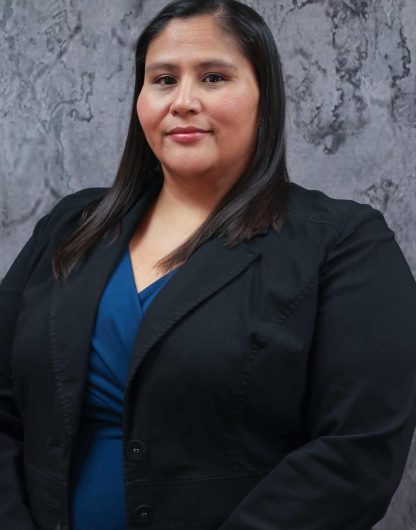
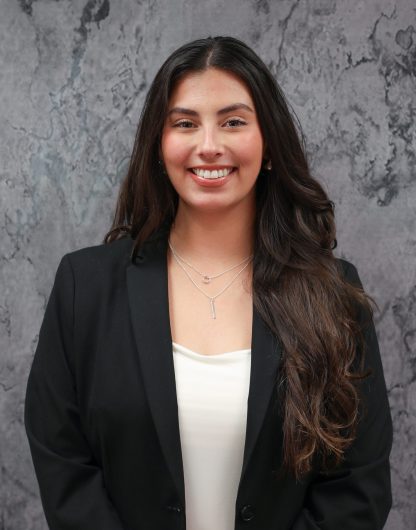
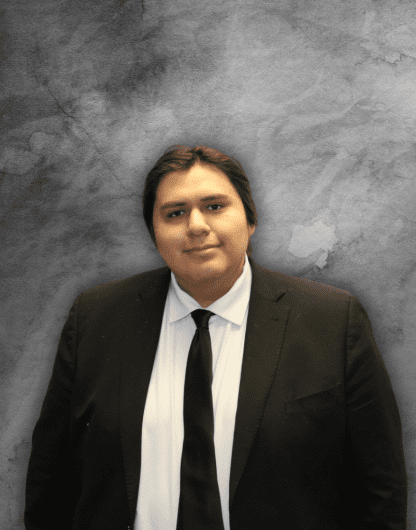
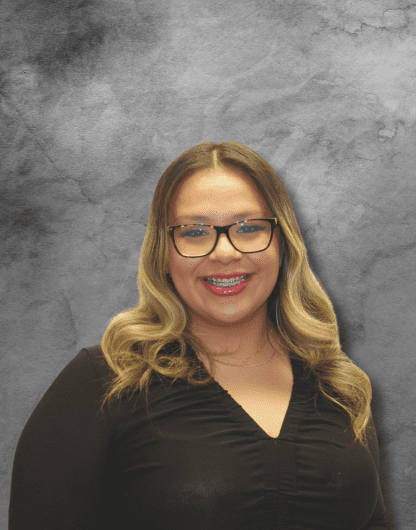
Meet the BOARD
Jody Lee DeLong Sr.
Jody is the NDNV Board Chair, he’s been with us since 2023 and is very important to NDNV. He began his career in higher education as a student at Turtle Mountain College, where he developed a strong passion for learning and community engagement. Through dedication and persistence, he worked his way through various grant-funded positions, gaining valuable experience in tribal governance, research, and community development. Each role provided Jody with deeper insight into the challenges and opportunities facing Indigenous communities, strengthening his commitment to education and advocacy. Over time, he transitioned from these grant-based roles into academia, ultimately earning a faculty position in Social Science. Today, Jody says he takes pride in educating and mentoring students, using his experiences to bridge academic knowledge with real-world applications in tribal governance and social issues.
Jody’s favorite pastime is spending quality time with his wife, children, and grandkids. “Whether we are sharing stories, laughing together, or simply enjoying each other’s presence, these moments bring me the greatest joy. It is in these times, surrounded by family, that I feel truly at peace and happiest.”
Justin Young
Justin Young works in the Special Education Department at TJES on the United Tribes campus. Justin and his wife, Angel, are proud parents of five children and fifteen grandchildren.
Justin initially served on the NDNV board when it was established in 2018 but stepped back to prioritize his family. “I’m grateful to return during these challenging times. My aim is to make a difference by empowering our Native community, amplifying our voices, and ensuring our communities are meaningfully represented. I’m eager to contribute and look forward to our future together.”
Wes Davis
Wes is Anishinabe from Turtle Mountain Band of Chippewa, Belcourt, North Dakota. Wes attended North Western Technical College in Bemidji, MN where he studied HVAC. His education has led him to designing a clean energy grid system called Exergy which has taken Turtle Mountain Community College almost completely off the coal fired energy grid. Beyond his technical achievements, Wes’s leadership extends to fostering community resilience and social cohesion. His advocacy for policies that prioritize clean energy initiatives and local economic development has empowered our communities to thrive amidst the challenges that are familiar across Indian Country. Wes’s ability to rally support and inspire action demonstrates his profound dedication to serving the people and ensuring their well-being. Wes has organized in his community on many issues including MMIW, MMIP, clean energy advocacy, voting rights, youth suicide prevention, and women’s self-defense.
Jonathan Catch The Bear-Leafe
Jonathan Catch The Bear-Leafe is Hunkpapa Lakota. Jonathan is currently pursuing his Master’s Degree in Business Administration at Sitting Bull College. Jonathan also volunteers his time as an at large board member of North Dakota Native Vote (NDNV) and has volunteered his time since the organization was founded in 2018. Jonathan also devotes his time to doing advocacy work for various causes he cares about and credits his time working with North Dakota Native Vote (NDNV) for preparing him to take on leadership positions.
During his scholastic career, Jonathan has earned an Associate’s Degree in Business Administration, an Associate’s Degree in Native American Studies, and a Bachelor’s Degree in Business Administration; all completed at Sitting Bull College. Jonathan had also restarted the Two Spirit Club at Sitting Bull College in September of 2021, with the assistance and guidance of club advisors, along with support from Sitting Bull College Student Government. Since the incorporation of the SBC Two Spirit Club, the club has provided many learning opportunities, social events, and outreach for the local community of Standing Rock to teach our tribal members about the importance and significance of our Two Spirit relatives in both the contemporary and traditional context.
Jonathan has participated in the inaugural NASA Minority University Research & Education Project (MUREP) Innovation Tech Transfer Idea Competition (MITTIC) from which he received an internship at NASA Ames Research Center in Mountain View, CA, within the Program Management Office (PMO) of the Small Business Innovation Research/ Small Business Technology Transfer (SBIR/STTR) Program for the summer of 2019. Additionally, Jonathan has interned for NASA Langley Research Center in Hampton, VA, as the Minority University Research & Education Project (MUREP) Intern for the Office of Science, Technology, Engineering, and Mathematics (OSTEM) Engagement which he completed virtually due to the COVID-19 pandemic in the summer of 2020.
Jonathan has also participated in the Annual National American Indigenous Business Leaders (AIBL) Business Plan Competition with Sitting Bull College where a group of students from Sitting Bull College were selected to write business plans that would have a positive impact for our Indigenous communities. We won third place in 2021 in Las Vegas, Nevada, first place in 2022 in Palm Springs, California, and second place in 2023 in Las Vegas, Nevada, for the Tribal Colleges and Universities (TCU) Division.
Ultimately, Jonathan’s goal, once completing the MBA Program, is to open his own businesses located on his reservation of Standing Rock where he can help to generate revenue for the reservation, expand the job market and employ tribal members, and raise awareness on issues that impact Indigenous communities.

